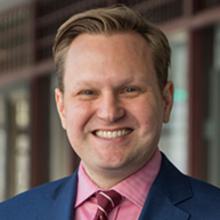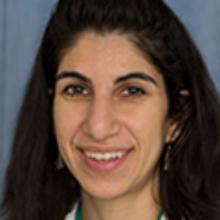Project RESULT: Rethinking Substance Use Disorder Practitioner Learning and Teaching
 In the US, there are more than 20 million adults with substance use disorders (SUDs), and many of these adults also experience mental illness (NIDA, 2017). In 2018, the CDC found that nearly 12% of people aged 12 years and over reported illicit drug use in the past month. Despite how prevalent SUDs are, many health professionals lack the confidence, knowledge, and skills to perform evidence-based screening and treatment.
In the US, there are more than 20 million adults with substance use disorders (SUDs), and many of these adults also experience mental illness (NIDA, 2017). In 2018, the CDC found that nearly 12% of people aged 12 years and over reported illicit drug use in the past month. Despite how prevalent SUDs are, many health professionals lack the confidence, knowledge, and skills to perform evidence-based screening and treatment.
Through grant funding from the Substance Abuse and Mental Health Services Administration (SAMHSA), we are changing that with Project RESULT (Rethinking Substance Use Disorder Practitioner Learning and Teaching). The goal of Project RESULT is to expand the number of healthcare practitioners that are competent to deliver high-quality, evidence-based SUD treatment and referral. An interprofessional team of educators at George Washington University's Schools of Medicine & Health Sciences, Nursing, and Public Health has created this evidence-based curriculum to prepare health professionals like you to care for patients and families impacted by substance use disorders, including alcohol, marijuana, opioids, stimulants, tobacco, and more. This program provides a practical, succinct overview of addiction as a brain disease, screening, brief intervention and treatment and referral for care. Throughout the training we provide links to additional resources should you want to dive deeper into any of these topics.
As part of our commitment to SAMHSA, we are collecting information about trainees with a short pre-test and post-training evaluation. Your feedback is anonymous and essential -- thank you for taking time to share your feedback using the two REDCap survey links provided within the course.
Target Audience
This activity is intended for physicians, physician assistants, pharmacists, registered nurses, advanced practice registered nurses, physical therapists, and other healthcare professionals engaged in the care of patients with or at risk for substance use disorder(s).
Learning Objectives
After completing this activity, the participant should be better able to:
- Describe the neurobiology of addiction as a chronic, relapsing brain disease
- Demonstrate culturally responsive communication skills with patients at risk for or with SUD
- Identify individuals with SUD using evidence-based screening tools (e.g., SBIRT strategies)
- Educate patients about SUD with language that is. positive, productive, and inclusive
- Formulate an evidence-based treatment plan for individuals with common SUDs (e.g., alcohol, marijuana, opioids, and stimulants)
- Collaborate as an interprofessional healthcare team to design comprehensive SUD treatment plans
- Develop referral to treatment plans for patients with SUDs that require specialized care, including attention to address barriers to care and establish clear methods for follow-up
Reamer L. Bushardt, PharmD, PA-C, DFAAPA
Kate Driscoll Malliarakis PhD, ANP-BC, MAC, FAAN
Karen A. McDonnell, PhD
Zeina Saliba, MD
Physicians
The George Washington University School of Medicine and Health Sciences is accredited by the Accreditation Council for Continuing Medical Education (ACCME) to provide continuing medical education for physicians.
The George Washington University School of Medicine and Health Sciences designates this enduring material for a maximum of 4 AMA PRA Category 1 Credits™. Physicians should claim only the credit commensurate with the extent of their participation in the activity.
Pharmacists
The George Washington University School of Medicine and Health Sciences is accredited by the Accreditation Council for Pharmacy Education as a provider of continuing pharmacy education.
ACPE#: 0536-000-21-018-H04-P
Activity Type: Knowledge
Release Date: October 1, 2021
Expiration Date: October 1, 2024
CE Credits: 4 Contact Hours; 0.4 CEU's
Pharmacy Technicians
The George Washington University School of Medicine and Health Sciences is accredited by the Accreditation Council for Pharmacy Education as a provider of continuing pharmacy education.
ACPE#: 0536-000-21-018-H04-T
Activity Type: Knowledge
Release Date: October 1, 2021
Expiration Date: October 1, 2024
CE Credits: 4 Contact Hours; 0.4 CEU's
Nurse Practitioners and Registered Nurses
The American Nurses Credentialing Center accepts AMA PRA Category 1 Credit(s)™ issued by organizations accredited by the ACCME (Accreditation Council for Continuing Medical Education). For the purposes of relicensure most State Boards of Nursing accept AMA PRA Category 1 Credit(s)™ for attendance at structured learning activities offered by organizations accredited by the ACCME.
Physician Assistants
The National Commission on Certification of Physician Assistants (NCCPA) accepts certificates of participation for educational activities certified for AMA PRA Category 1 Credit(s)™ from organizations accredited by ACCME or a recognized state medical society.
Physician assistants may receive a maximum of 4 hours of Category 1 credit for completing this course.
Other Healthcare Professionals
A certificate of participation will be provided to all other healthcare professionals for requesting credits in accordance with state boards, specialty societies, or other professional associations. Many societies and credentialing bodies accept the AMA PRA Category 1 Credit™ as an equivalent as long as the topic is relevant to the applicant’s field or discipline. If participants have doubts whether an activity will qualify for CE, they should contact their state licensing board to ensure they accept reciprocity with AMA PRA Category 1 Credit(s)™ for re-licensure registering for the course.
Available Credit
- 4.00 ACPE PharmacistThe George Washington University School of Medicine and Health Sciences is accredited by the Accreditation Council for Pharmacy Education as a provider of continuing pharmacy education.
- 4.00 AMA PRA Category 1 Credit™The George Washington University School of Medicine and Health Sciences is accredited by the Accreditation Council for Continuing Medical Education (ACCME) to provide continuing medical education for physicians.
- 4.00 Completion
INSTRUCTIONS FOR ENROLLING IN THE COURSE
Please note that you must be logged in to enroll in the course.
NEW USERS
You must create a learner account prior to registering for this course.
Click here to create a learner account
Click here to access additional instructions for creating a learner account
RETURNING USERS
Click here to login and proceed with enrolling the course
questions
Please contact the CEHP Office:
Email: [email protected]
Phone: 202-994-4285

 Facebook
Facebook X
X LinkedIn
LinkedIn Forward
Forward


